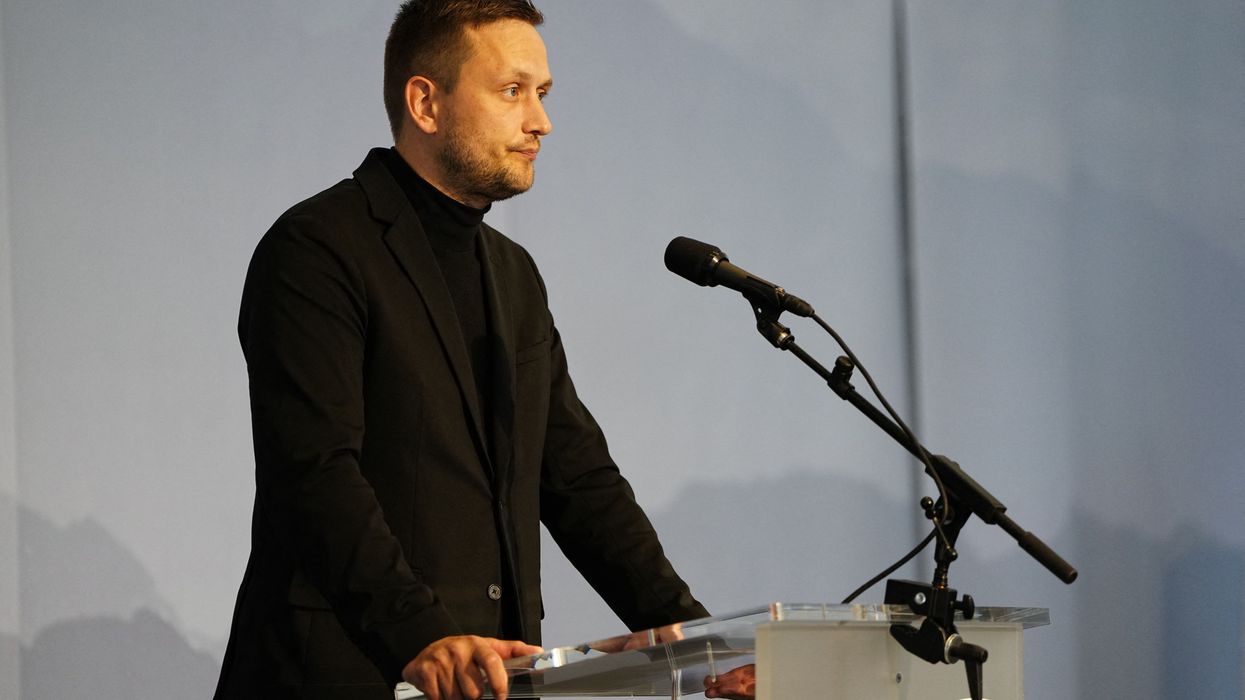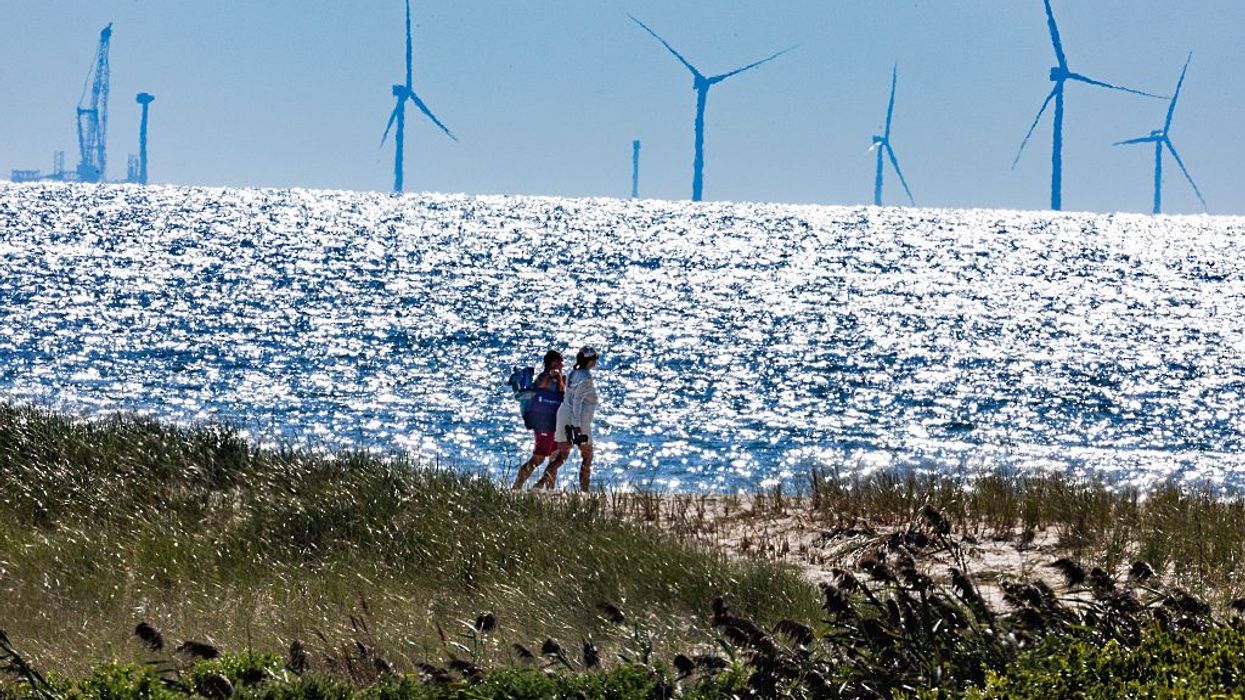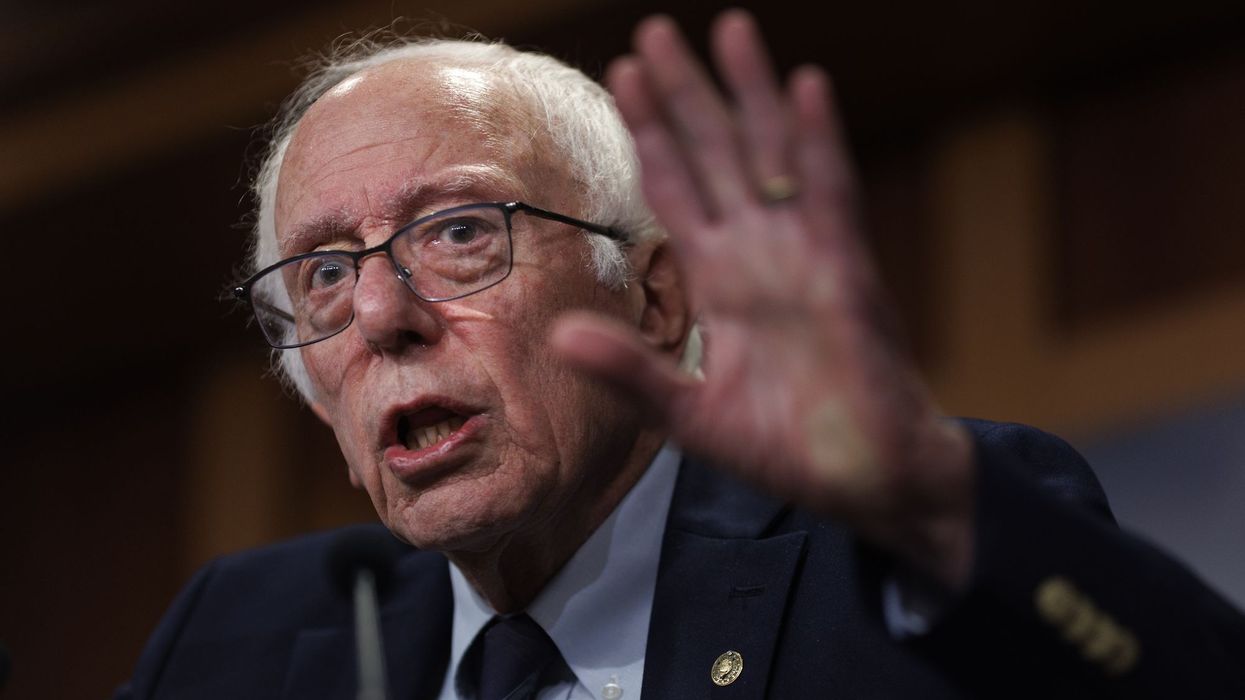June, 11 2013, 11:23am EDT
For Immediate Release
Contact:
Reprieve's London office can be contacted on: communications [at] reprieve.org.uk / +44 (0) 207 553 8140.,Reprieve US,, based in New York City, can be contacted on Katherine [dot] oshea [at] reprieve.org
Less Than 3% of All Guantanamo Prisoners Will be Tried, Prosecutor Announces
WASHINGTON
Commenting on the announcement by Guantanamo's Chief Prosecutor that a total of just 20 detainees - down from a previous estimate of 36 - are to receive trials, Cori Crider, a Guantanamo attorney and Strategic Director at human rights charity Reprieve said:
"With nearly 800 people having been sent to Guantanamo over the years, this represents a total of under 3% who will even make it to trial - let alone be found guilty. This shockingly low figure demonstrates what a terrible mistake Guantanamo has been, and just how many lives have been ruined for no good reason.
"Meanwhile, more than half the prisoners still held in Guantanamo have been cleared for release, yet are going nowhere. It is high time President Obama got his act together and delivered on his promise to close this prison."
Reprieve is a UK-based human rights organization that uses the law to enforce the human rights of prisoners, from death row to Guantanamo Bay.
LATEST NEWS
‘You Cannot Annex Other Countries’: Greenland, Denmark Furious at Trump Special Envoy Appointment
Louisiana Gov. Jeff Landry's new title "changes nothing for us at home," said the leader of Greenland. "We decide our future ourselves."
Dec 22, 2025
The leaders of Denmark and Greenland have rejected President Donald Trump's plans to take control of the latter country "very clearly before," said Danish Prime Minister Mette Frederiksen and Greenlandic Premier Jens-Frederik Nielsen on Monday, but they were forced to make their resolve even more explicit after the US leader appointed a new special envoy to the autonomous Arctic island territory.
"National borders and the sovereignty of states are rooted in international law," said Frederiksen and Nielsen in a joint statement Monday. "You cannot annex other countries... Greenland belongs to the Greenlanders, and the US should not take over Greenland. We expect respect for our common territorial integrity.”
The two leaders spoke out after Trump announced his appointment of Republican Louisiana Gov. Jeff Landry as envoy to Greenland, with both men referencing plans to take control of the country of 57,000 people, which is part of the Danish kingdom.
"Jeff understands how essential Greenland is to our National Security, and will strongly advance our Country’s Interests for the Safety, Security, and Survival of our Allies, and indeed, the World," said the president Sunday evening.
Landry replied that it is "an honor to serve you in this volunteer position to make Greenland a part of the US."
While joining Frederiksen in forcefully rejecting any plans for an annexation of Greenland, Nielsen also dismissed Landry's new role in another statement.
“It may sound big," said Nielsen of the Trump administration's latest overtures. "But it changes nothing for us at home... We decide our future ourselves."
Trump has pushed for a takeover of Greenland since his first term in the White House, and he has ramped up efforts this year since returning to office. In August, Danish Foreign Minister Lars Løkke Rasmussen summoned Mark Stroh, the US chargé d'affaires in Denmark, after the country's public broadcaster reported that the Trump administration had launched a covert "influence" campaign to sew discord between Denmark and Greenland.
Earlier this year, polling showed that 85% of Greenlanders opposed joining the US. Hundreds of people protested in Greenland's capital, Nuuk, in March, ahead of US Vice President JD Vance's visit to the country.
Greenlandic photographer Orla Joelsen said Monday that should Landry come to the country, "he will be welcomed by a massive demonstration—larger than the one we held back in March this year."
The White House has said the US should take control of the mineral-rich island for "national security and even international security." According to the US Geological Survey, the Arctic holds 13% of undiscovered oil resources and 30% of undiscovered gas. The climate emergency and melting Arctic ice has also expanded the use of the northern ocean for trade shipping routes, and controlling Greenland would give the US a greater claim in the region.
Trump has threatened to use military action to seize Greenland, saying in March that the White House would "go as far as we have to” to take ownership of the island.
On Monday, Rasmussen told the press he plans to summon the US ambassador to Denmark, Ken Howery, to the European country to demand "an explanation" of Landry's appointment.
Rasmussen said Landry's statement about Greenland was "completely unacceptable."
“As long as we have a kingdom in Denmark that consists of Denmark, the Faroe Islands, and Greenland, we cannot accept that there are those who undermine our sovereignty," he said.
European Commission chief Ursula von der Leyen and European Council President Antonio Costa expressed "full solidarity" with Denmark and Greenland on Monday, calling territorial sovereignty "fundamental principles of international law."
"These principles are essential not only for the European Union," they said, "but for nations around the world."
Keep ReadingShow Less
Trump Continues 'War Against Renewables' With Halt of Five Offshore Wind Farms
"Trump is killing jobs, raising energy costs, and harming the planet," said Sen. Tim Kaine. "Grinch!"
Dec 22, 2025
The Trump administration's efforts to thwart a transition from climate-wrecking fossil fuels to renewable energy continued on Monday with a halt on five wind farms along the US East Coast under the guise of national security concerns.
The US Department of the Interior announced that it is immediately pausing Coastal Virginia Offshore Wind off Virginia, Empire Wind 1 and Sunrise Wind off New York, Revolution Wind off Rhode Island and Connecticut, and Vineyard Wind 1 off Massachusetts, citing unclassified government reports that "the movement of massive turbine blades and the highly reflective towers create radar interference called 'clutter.'"
Bloomberg reported Monday that "President Donald Trump has long opposed offshore wind power and began imposing restrictions on it within hours of taking office this year. The policies have led to numerous court battles, and a federal judge this month ruled his ban on projects was illegal. Citing national security issues may be a more legally durable way to keep wind turbines out of US waters."
"Offshore wind farm projects raised national security concerns under previous administrations, too. The Defense Department under former President Joe Biden pushed successfully for changes to leases being sold along the West Coast to address some of the issues," Bloomberg noted. Elsewhere, such as in the United Kingdom, government and industry have responded to radar interference issues by investing in mitigation technologies.
Responding to the news on social media, American anthropologist and journalist Scott Carney said that "shutting down wind farms in the name of national security only proves that Trump is a national security risk. Lying that climate change doesn't exist is not an effective policy against environmental collapse."
Jonathan Cohn, political director of the grassroots group Progressive Mass, pointed out that "if these were oil drilling projects being canceled, Republicans would scream that canceling the project was theft from the company. If renewable energy is canceled, those same Republicans cheer."
Dean Baker, senior economist at the Center for Economic and Policy Research, warned that "any company would be crazy to invest a dime in Donald Trump's America... The jerk can confiscate property any time he wants for any reason he invents."
According to the New York Times: "Vineyard Wind 1 is currently under construction and partially operational, with about half of the project's 62 turbines sending power to the electric grid as of October. Once complete, the project could produce enough electricity to power 400,000 homes."
Congressman Greg Stanton (D-Ariz.) declared that "wind farms are an essential part of a diversified energy strategy. Trump's cancellation of approved, in-progress projects wastes public dollars and widens the gap between America and its competitors."
Rep. John Larson (D-Conn.), whose constituents would benefit from the Revolution Wind project, said that "the president has taken an axe to wind energy, solar projects, and our state's clean hydrogen sector, putting hundreds of people out of work and saddling households across the state with even higher electricity bills. The state of Connecticut, led by Attorney General William Tong, already took him on to halt his illegal stop work order before, and we're prepared to do it again."
Sen. Tim Kaine (D-Va.) said: "Trump is killing jobs, raising energy costs, and harming the planet. Grinch!"
Senate Majority Leader Chuck Schumer (D-NY) similarly responded: "Donald Trump is trying AGAIN to kill thousands of good-paying union jobs and raise your electricity bill. I have been fighting Trump's war against offshore wind—a war that threatens American jobs and American energy. I will keep fighting to make sure these projects, the thousands of jobs they create, and the energy they provide can continue."
Sierra Club legislative director Melinda Pierce said in a statement that "blocking construction on all offshore wind projects underway in the US is an attack on our economy and our public health. The Trump administration's vengeance towards renewable energy knows no end."
"Instead of progressing us forward as a nation, they are obsessed with attacking a growing industry that provides good clean energy jobs and affordable, clean electricity," she added. "Americans need cheaper and more reliable energy that does not come at the expense of our health and futures."
Interior Secretary Doug Burgum discussed the decision on Fox Business Monday, pointing to the radar interference concerns.
Noting the appearance, writer and filmmaker Lee West said: "So 'national security' means suspending wind farms Navy approved for years—while drilling rigs multiply off Florida. The [administration's] pretexts grow taller than turbine blades."
Keep ReadingShow Less
‘No More Military Aid for Netanyahu,’ Says Sanders as Israel Ramps Up West Bank Takeover
"It’s not just Gaza," the senator said. "Netanyahu’s extremist government is supporting the violent annexation of Palestinian land in the West Bank."
Dec 22, 2025
As Israeli settlers escalate attacks on Palestinians in the West Bank as part of a furious state-backed annexation push, US Sen. Bernie Sanders said it was yet another reason to suspend military aid to the government of Prime Minister Benjamin Netanyahu.
"It’s not just Gaza," the independent Vermont senator wrote on social media Sunday. "Netanyahu’s extremist government is supporting the violent annexation of Palestinian land in the West Bank. This is illegal and immoral, and decades of American silence have enabled it."
"NO MORE MILITARY AID FOR NETANYAHU," he concluded.
Sanders was responding to a feature published in the New York Times that same day, which examined the rapid expansion of illegal settler outposts over the past two decades, and the further acceleration after October 7, 2023, when Israel’s more than two-year genocidal assault began in Gaza following a Hamas-led attack.
The report provides data from the Israeli activist group Peace Now, which found that in 2024 and 2025, Israelis built more than 130 new outposts in the West Bank.
Despite the fact that they are illegal under both Israeli and international law, the settlers constructing these outposts operate with the support of the Israeli military and government.
As the Times reports:
The unrelenting violent campaign by these settlers, that critics say is largely tolerated by the Israeli military, consists of brutal harassment, beatings, even killings, as well as high-impact roadblocks and village closures. These are coupled with a drastic increase in land seizures by the state and the demolition of villages to force Palestinians to abandon their land.
Many of the settlers are young extremists whose views go beyond even the far-right ideology of the government. They are not generally operating on direct orders from Israel’s military leadership. But they know the military frequently looks the other way and facilitates their actions.
In many cases, it is the military that forces Palestinians to evacuate or orders the destruction of their homes once settlers drive them to flee.
Just in 2025, the report says, settlers and the military have razed more than 1,500 Palestinian structures, double the annual average from before 2023. Since the war began, more than 4,000 Palestinians have been forcibly displaced from their homes.
Meanwhile, the Israeli government has also declared a record number of areas in the West Bank to be "state land," meaning that they are off limits to Palestinians and that Israelis can use them to build more settlements.
Far-right forces in the Israeli government have been overt about the intention of these settlements: to carve up the West Bank so thoroughly that a contiguous Palestinian state becomes effectively impossible. Netanyahu has often reiterated his position that under his watch, a Palestinian state will never be created.
In August, as the Israeli government approved a massive 3,400-home settlement project in the heart of the occupied West Bank, Finance Minister Bezalel Smotrich—himself a settler and one of the leading representatives of the far-right settler movement in Netanyahu’s cabinet—boasted that the project “buries the idea of a Palestinian state,” adding that “Every town, every neighborhood, every housing unit... is another nail in the coffin of this dangerous idea.”
On Sunday, Israel’s cabinet approved another 19 Jewish-only settlements across the West Bank, raising the total number to more than 200 in the territory, up from around 140 three years ago. Smotrich said with the new construction, Israel was “putting the brakes on the rise of a Palestinian terror state.”Until recently, the official policy of the US government has been one of opposition to settlements, even as their construction continued largely unimpeded.
During his second term, President Donald Trump has talked out of both sides of his mouth. While promising Arab leaders that Israel would not annex the West Bank as he sought to broker a ceasefire, his administration has often expressed tacit, and occasionally overt, support for settlement expansion.
UN Secretary-General António Guterres denounced the rapid expansion of settlements, saying it “continues to fuel tensions, impede access by Palestinians to their land, and threaten the viability of a fully independent, democratic, contiguous, and sovereign Palestinian state.”
In July, as reports of famine out of Gaza grew increasingly dire due to Israel's blockade of humanitarian aid, Sanders sponsored a Senate resolution to block $675 million in US weapons sales to Israel.
Though the vote was far from passing, 27 members of the Democratic caucus—a majority, for the first time—voted in favor. Sanders said it suggested that "the tide is turning" with respect to attitudes towards Israel's actions within the party.
In an AtlasIntel poll published on Friday, 62% of respondents said they opposed US financial support for Israel, compared with 20% who supported it. 50% of respondents said they "totally oppose" weapons to Israel, while just 9% said they "totally support" it.
Despite this, the most recent military spending bill, passed last week, provides another $650 million in military aid for Israel, up $45 million from the previous package, despite the implementation of a ceasefire in Gaza.
The bill also included an unprecedented measure requiring the executive branch to assess how the US can supply additional weapons to Israel to fill in "gaps" from embargoes imposed by other nations over the country's human rights abuses in Gaza and the West Bank.
Keep ReadingShow Less
Most Popular


